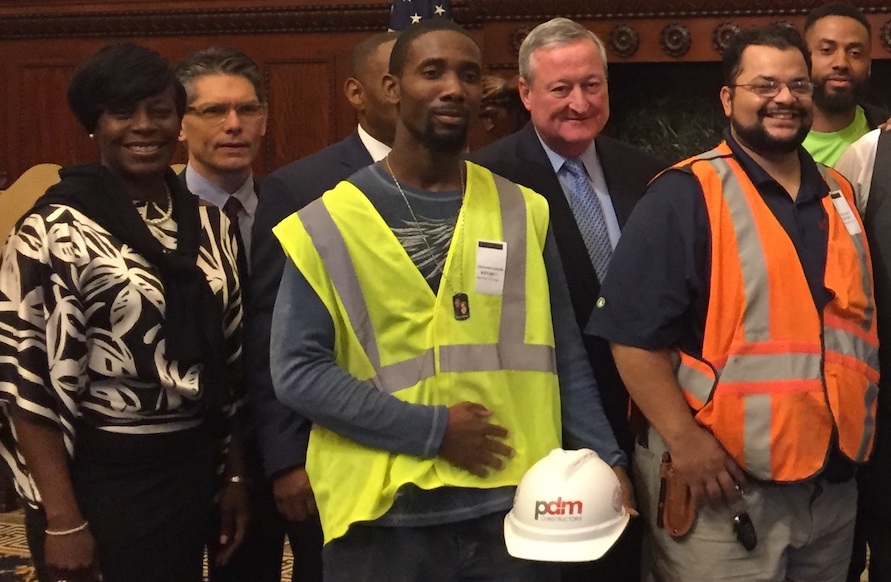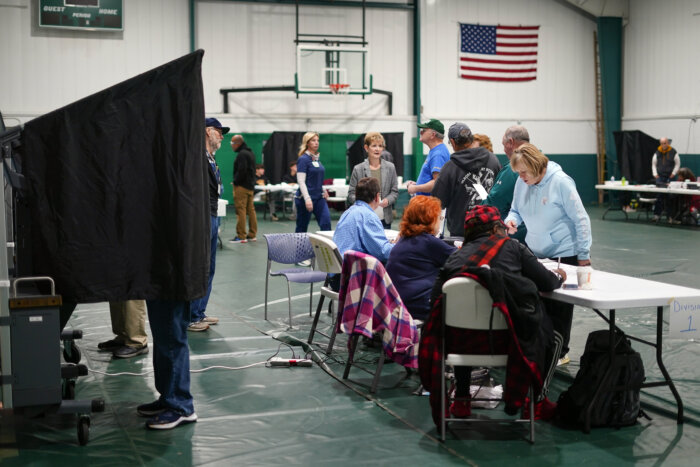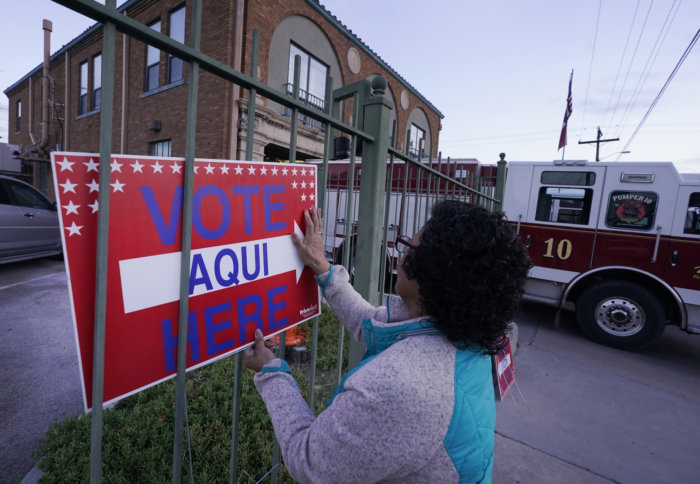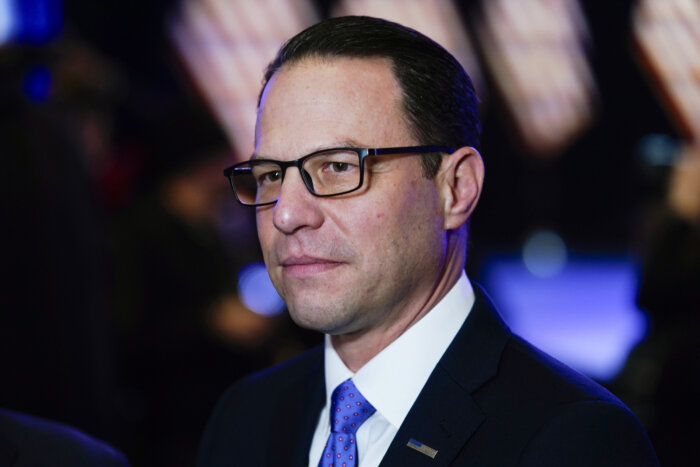In Philadelphia, it has been historically difficult for minority workers to enter the unions. Real estate developer and retired Philadelphia Police sergeant Jihad Ali compared it to a “glass wall,” similar to the oft discussed glass ceiling women face in the workforce.
Ali referenced a report from the Mayor’s Advisory Commission on Construction Industry Diversity, from March 2009, to explain how the loss of manufacturing jobs in the city lead to the rise of unions and, due to nepotism and racism, minorities lost blue collar work to the unions.
“Since then, it’s like there’s been a line drawn in the sand,” he said in a recent interview. “It’s really hard to get that work… It’s like a glass wall, because you can only go so high and it’s really hard to get in.”
Last week, City Council unveiled a trio of programs aimed at helping minority workers break into the city’s trade unions. Wwith these new initiatives, some are excited about the opportunities they provide, while others interviewed had concerns that they don’t go far enough.
The three programs are:
– Brandywine Realty Trust’s Neighborhood Engagement Initiative – a five-year, $5.6 million initiative tied to a $3.5 billion Schuylkill Yards planned community in West Philly.
– Penn Medicine’s PennAssist program, linked to the university’s planned New Patient Pavilion to be built at 33rd St. at Convention Ave.
– The city’s PHL Pipeline, part of the $500 million Rebuild initiative aimed at improving the city’s parks and rec. centers.
Each has unique elements, but they all endeavor to help women and minorities obtain apprentice opportunities with contractors and obtain membership in the city’s trade unions.
As Philadelphia Daily News columnist Solomon Jones pointed out in a recent column, a 2008 document called the Philadelphia Building and Construction Trades Council AFL-CIO Diversity Commitment and Plan said that in 12 of the city’s unions “just 19 percent of the union’s members were women or people of color.”
And, more recently, a 2016 study found that about $290 million of $951 million in city construction contracts the year prior had been awarded to businesses owned by minorities, women or those with disabilities.
According to Walt McGill, director of the Construction Apprentice Preparatory Program (CAPP), which has been sponsored by Brandywine Realty Trust for its initiative, the city’s new programs are aimed directly at targeting the very nepotism and racism that has kept minorities from joining the trade unions.
“The hurdle was really information,” said McGill, who is called ‘Uncle Walt’ by students in CAPP. “There is an issue with racism, but that’s everywhere. There is an issue with nepotism, but that’s everywhere. We tell our guys to just don’t worry about that… Because, when someone says no, we just keep on going.”
From the outset, these three initiatives look like they do just that, enabling members of minority groups to overcome those issues and obtain the training they need to pass the qualifying tests to become members of the unions and work as apprentices with contractors doing the work on these specific projects.
Ali said he was concerned that while these newly announced initiatives might help get young people into trade unions, they do nothing to help minority workers who are older and have been working non-union in the community for years.
“We still think it’s tricky,” said Ali. “I’m skeptical.”
And, needless to say, trade unions hold some sway in this city, as at least two non-union contractors contacted for this article asked to remain anonymous before commenting on the history of racism and nepotism in the city’s unions.
A plumbing contractor, who asked only to be identified as “Jay” said that he appreciated the three programs but, said the offering might be too little, too late.
“Blue collar whites have become millionaires. But, blue collar blacks haven’t been able to get those contracts,” he said, saying that over the years, the majority white unions have gotten all the city’s building contracts. “We aren’t anti-union, we are anti-discrimination… [Unions] are a clique and that’s the hurdle that we are still trying to overcome.”
































